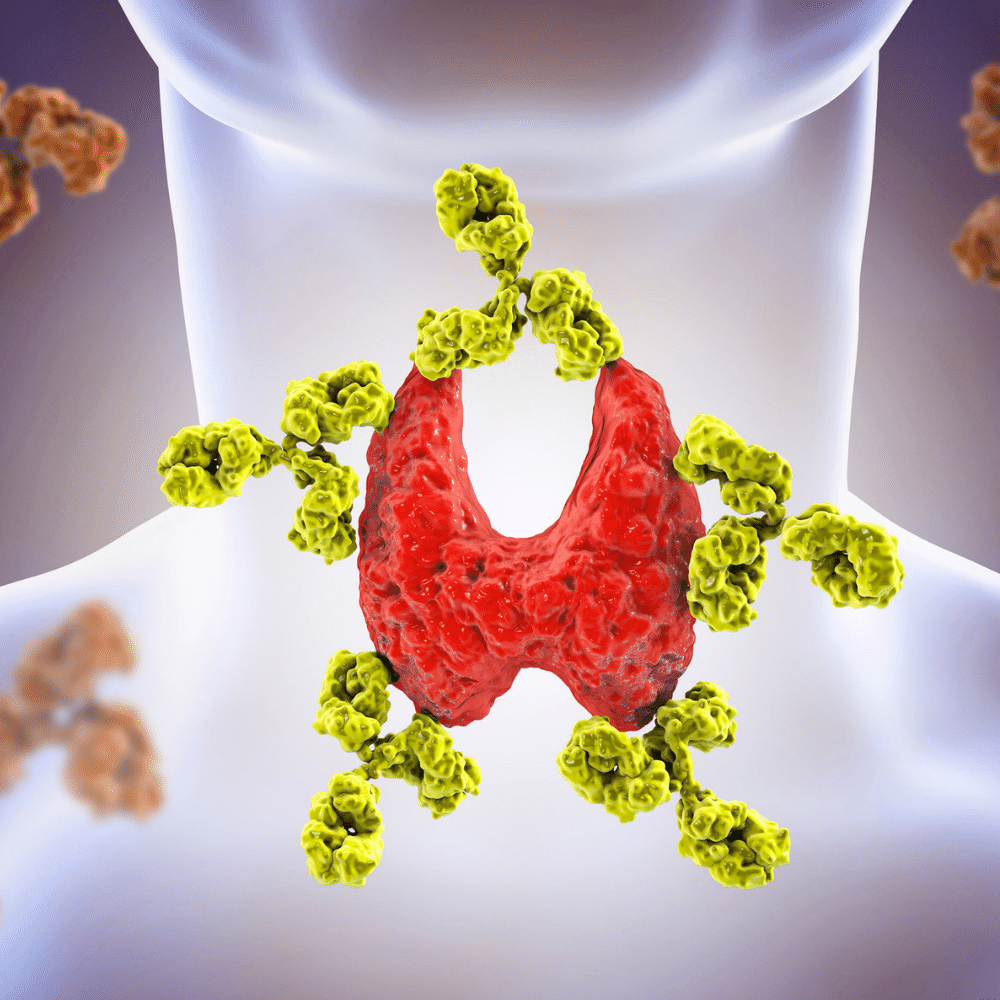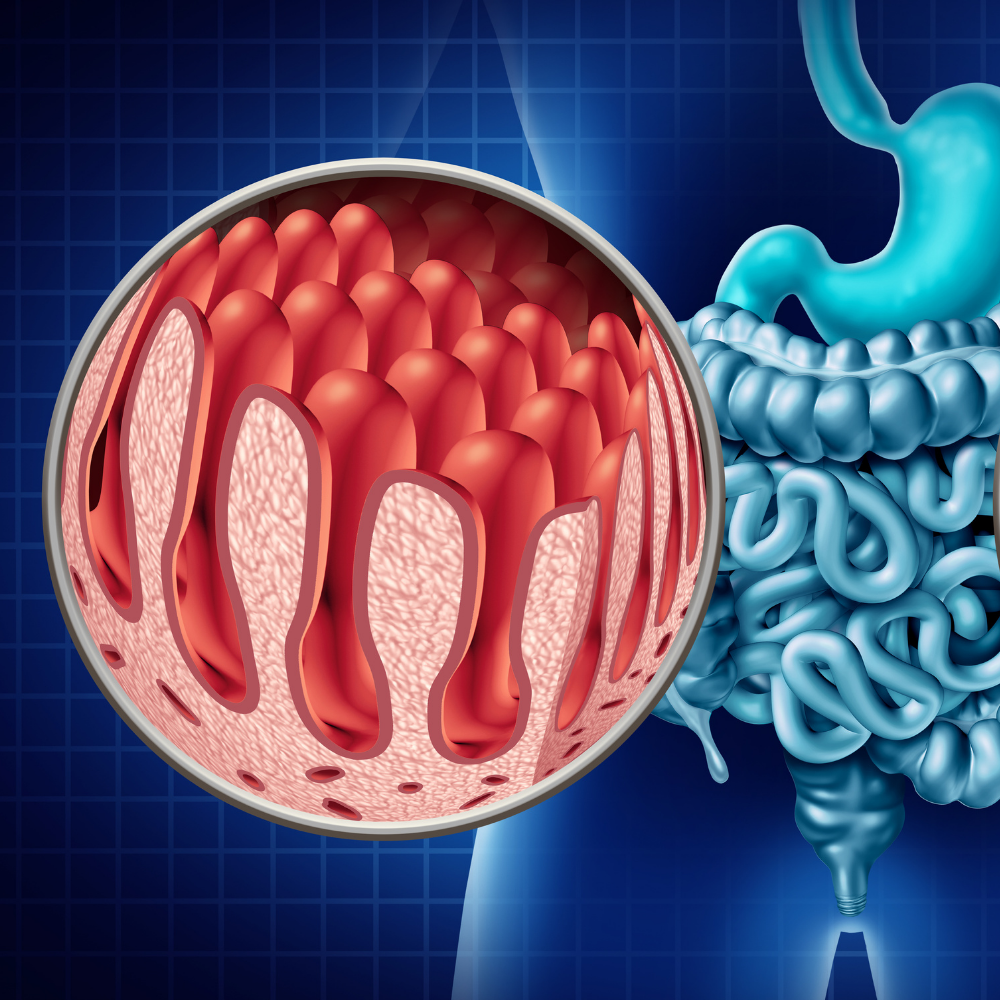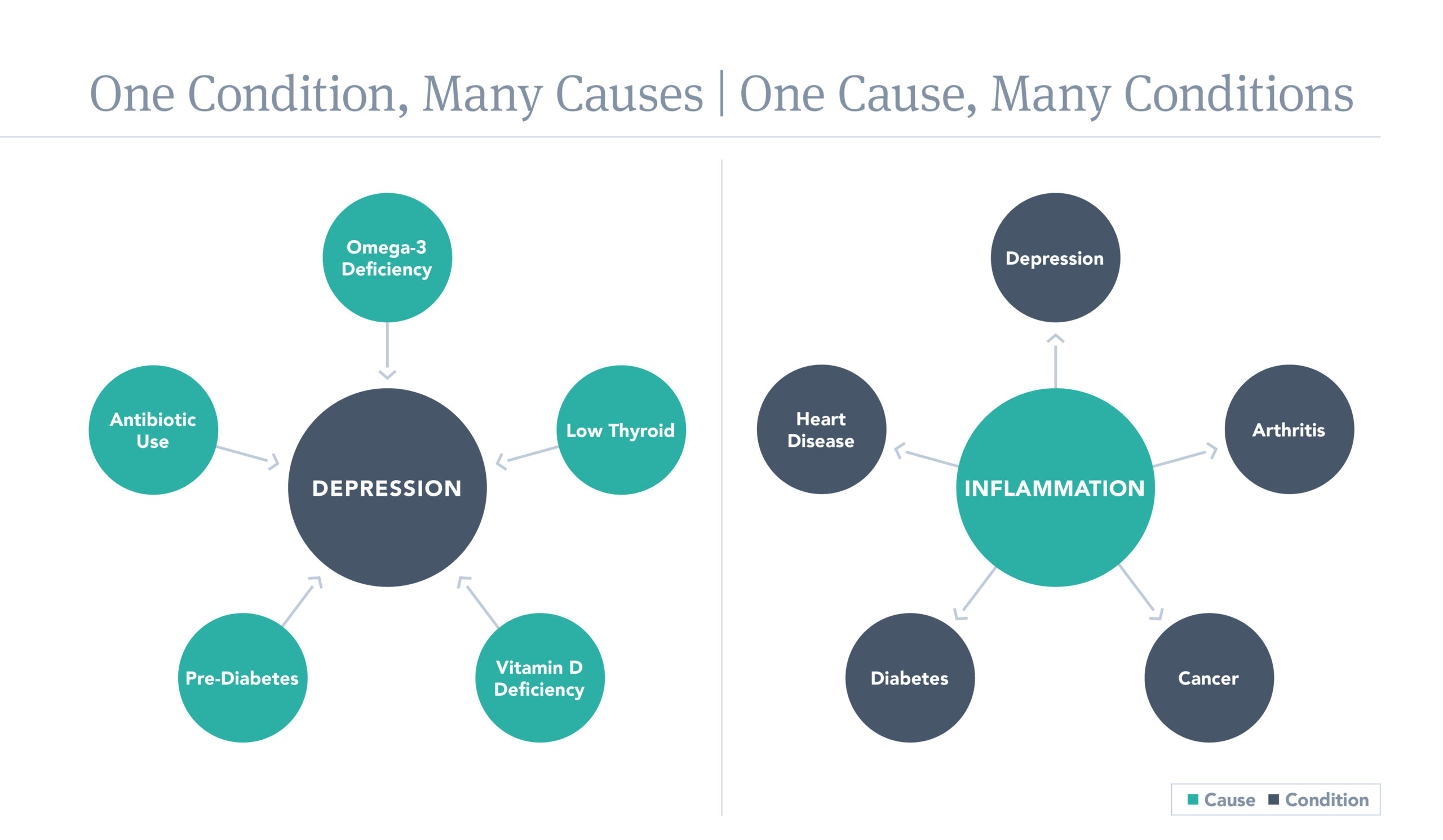Autoimmune Disorders
What are Autoimmune Disorders?
An autoimmune disease is a condition in which your immune system mistakenly attacks your body. The immune system normally guards against germs like bacteria and viruses. When it senses these foreign invaders, it sends out an army of fighter cells to attack them. Normally, the immune system can tell the difference between foreign cells and your own cells. In an autoimmune disease, the immune system mistakes part of your body, like your joints or skin, as foreign. It releases proteins called autoantibodies that attack healthy cells.
What conditions can be treated?
At Anodyne, we utilize an individualized, patient-centered, science-based approach called Functional Medicine that empowers patients and practitioners to work together to address the underlying causes of disease and promote optimal wellness. At Anodyne, we treat several Autoimmune disorders such as:
- Hashimoto’s Disease
- Celiac Diseae
- Crohn’s Disease
- Rheumatoid Arthritis

Hashimoto’s Disease
Hashimoto’s disease is a condition in which your immune system attacks your thyroid, a small gland at the base of your neck below your Adam’s apple. The thyroid gland is part of your endocrine system, which produces hormones that coordinate many of your body’s functions. Inflammation from Hashimoto’s disease, also known as chronic lymphocytic thyroiditis, often leads to an underactive thyroid gland (hypothyroidism). Hashimoto’s disease is the most common cause of hypothyroidism. It primarily affects middle-aged women but can also occur in men and women of any age and in children.
You might not notice signs or symptoms of Hashimoto’s disease at first, or you may notice a swelling at the front of your throat (goiter). Hashimoto’s disease typically progresses slowly over years and causes chronic thyroid damage, leading to a drop in thyroid hormone levels in your blood. The signs and symptoms are mainly those of an underactive thyroid gland (hypothyroidism).
Signs and symptoms of hypothyroidism include:
- Fatigue and sluggishness
- Increased sensitivity to cold
- Constipation
- Pale, dry skin
- A puffy face
- Brittle nails
- Hair loss
- Enlargement of the tongue
- Unexplained weight gain
- Muscle aches, tenderness and stiffness
- Joint pain and stiffness
- Muscle weakness
- Excessive or prolonged menstrual bleeding
- Depression
- Memory lapses
Celiac Disease
Celiac disease, sometimes called celiac sprue or gluten-sensitive enteropathy, is an immune reaction to eating gluten, a protein found in wheat, barley and rye.
If you have celiac disease, eating gluten triggers an immune response in your small intestine. Over time, this reaction damages your small intestine’s lining and prevents it from absorbing some nutrients (malabsorption). The intestinal damage often causes diarrhea, fatigue, weight loss, bloating and anemia, and can lead to serious complications.
The signs and symptoms of celiac disease can vary greatly and differ in children and adults. Digestive signs and symptoms for adults include:
- Diarrhea
- Fatigue
- Weight loss
- Bloating and gas
- Abdominal pain
- Nausea and vomiting
- Constipation
However, more than half the adults with celiac disease have signs and symptoms unrelated to the digestive system, including:
- Anemia, usually from iron deficiency
- Loss of bone density (osteoporosis) or softening of bone (osteomalacia)
- Itchy, blistery skin rash (dermatitis herpetiformis)
- Mouth ulcers
- Headaches and fatigue
- Nervous system injury, including numbness and tingling in the feet and hands, possible problems with balance, and cognitive impairment
- Joint pain
- Reduced functioning of the spleen (hyposplenism)


Crohn’s Disease
Crohn’s disease is a type of inflammatory bowel disease. As many as 780,000 Americans have the condition, according to the Crohn’s & Colitis Foundation (CCF).
Crohn’s disease most commonly occurs in the small intestine and the colon. It can affect any part of your gastrointestinal (GI) tract, from your mouth to your anus. It can involve some parts of the GI tract and skip other parts.
The range of severity for Crohn’s is mild to debilitating. Symptoms vary and can change over time. In severe cases, the disease can lead to life-threatening flares and complications.
The symptoms of Crohn’s disease often develop gradually. Certain symptoms may also become worse over time. Although it’s possible, it’s rare for symptoms to develop suddenly and dramatically. The earliest symptoms of Crohn’s disease can include:
- diarrhea
- abdominal cramps
- blood in your stool
- a fever
- fatigue
- loss of appetite
- weight loss
- feeling as if your bowels aren’t empty after a bowel movement
- feeling a frequent need for bowel movements
It’s sometimes possible to mistake these symptoms for the symptoms of another condition, such as food poisoning, an upset stomach, or an allergy. You should see your doctor if any of these symptoms persist.
The symptoms may become more severe as the disease progresses. More troublesome symptoms may include:
- a perianal fistula, which causes pain and drainage near your anus
- ulcers that may occur anywhere from the mouth to the anus
- inflammation of the joints and skin
- shortness of breath or decreased ability to exercise due to anemia
Rheumatoid Arthritis
Rheumatoid arthritis is a chronic inflammatory disorder that can affect more than just your joints. In some people, the condition can damage a wide variety of body systems, including the skin, eyes, lungs, heart and blood vessels.
An autoimmune disorder, rheumatoid arthritis occurs when your immune system mistakenly attacks your own body’s tissues.
Unlike the wear-and-tear damage of osteoarthritis, rheumatoid arthritis affects the lining of your joints, causing a painful swelling that can eventually result in bone erosion and joint deformity.
Signs and symptoms of rheumatoid arthritis may include:
- Tender, warm, swollen joints
- Joint stiffness that is usually worse in the mornings and after inactivity
- Fatigue, fever and loss of appetite
Early rheumatoid arthritis tends to affect your smaller joints first — particularly the joints that attach your fingers to your hands and your toes to your feet.
As the disease progresses, symptoms often spread to the wrists, knees, ankles, elbows, hips and shoulders. In most cases, symptoms occur in the same joints on both sides of your body.
About 40 percent of the people who have rheumatoid arthritis also experience signs and symptoms that don’t involve the joints. Rheumatoid arthritis can affect many nonjoint structures, including:
- Skin
- Eyes
- Lungs
- Heart
- Kidneys
- Salivary glands
- Nerve tissue
- Bone marrow
- Blood vessels


Accelerate Your Health With Innovative Medicine
"They are super helpful getting me back on track with my thyroid (graves) issue! They helped me before and I got lazy with my eating and stress management. Now I’m getting back on track and am feeling much better again! Love these guys they really know what they are doing! It's an amazing clinic!"
"I am so glad I found East West. I have gained quite a bit of relief from my injections and the acupuncture is superb. I like their supplements and their knowledge and ability to help me problem solve my gut, hormone and inflammation issues. The staff are so personable and friendly and really care! It’s a wonderful clinic!"
"I came to the clinic to address the osteoarthritis of my hip. I could not be more pleased with the care I had. My treatment included various approaches. This integrated approach to health treatment blends the best of traditional western medicine with proven eastern practices. I highly recommend East West!"
